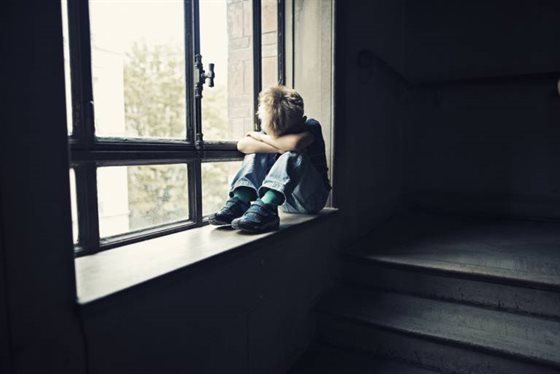Researchers are examining the impact that Covid-19 has had on children living in temporary accommodation in a new nationwide study.
De Montfort University Leicester (DMU)’s Dr Nadia Svirydzenka, Professor Raghu Raghavan, and Dr Kriss Fearon are part of the study, led by Professor Monica Lakhanpaul and Diana Margot Rosenthal of University College London and funded by UKRI ERSC.
 Photo credit: Imgorthand
Photo credit: Imgorthand
The research team will work with families with children under 5 in temporary accommodation and experiencing homelessness to learn about their experiences of life through the Covid-19 pandemic and its impact on child health and wellbeing. Families and health professionals will also be involved in co-developing appropriate, inclusive, and effective intervention models and public health messaging that are accessible and acceptable for this marginalised population.
Homeless communities are among those hit hardest by Covid-19 and represent one of the greatest health inequalities and inequities in the country. This project aims to address that and will also provide a model for future researchers and policy makers to engage with them and develop effective public health policy and interventions.
Dr Svirydzenka, who is part of DMU’s psychology team, said: “Young children in temporary accommodation suffer an invisible plight in the current pandemic at a crucial period for their development, with long-lasting consequences for their health. We aim to use the platform of this project to give voice to families and learn from their experiences so that our healthcare services and policy can provide integrated support where it is so gravely needed.”
The Children’s Commissioner reported that approximately 585,000 children were homeless or at risk of homelessness in England. Those in temporary accommodation have an “invisible” plight as they are often excluded from research and national policies as they do not appear to pose as obvious a need as children sleeping rough.
Homeless children, particularly those under five years old, are more vulnerable to common childhood illnesses, missing key developmental milestones, and behavioural and emotional difficulties. They often struggle to access health or care services that might help, and this situation has only worsened with Covid-19 and the reduction of services like child health and immunisation programmes.
Children in temporary accommodation and their families are at greater risk from Covid-19 as they often cannot follow the basic guidelines that have been promoted throughout the pandemic – namely social distancing, self-isolating and handwashing – due to overcrowded housing, shared facilities or other issues.
The Institute of Health Visiting has highlighted the fact that there is little planning for addressing the needs of children in temporary accommodation. But, as 37 per cent of homeless families in England in 2017/18 were from BAME backgrounds, the general guidance from Public Health England may not always be culturally appropriate or accessible.
The study aims to develop ways to reach these children, as well as for how to help them in the future, post-COVID. These include tailoring strategies from successful global public health projects, but above all will require working with these communities and learning from their lived experiences and applying that learning in practice and policy.
The team will be launching an innovative knowledge exchange digital platform (https://www.championsproject.co.uk/), which will be co-developed with the families participating in the study where they can tell their stories of lockdown, whilst also enabling the researchers to co-produce visual material to help other families access support services.
This is particularly significant, as the language barrier is one of the main problems for homeless families. The platform/website will be also be publicly accessible and support healthcare professionals working with this population.
The study will run for 18 months and be conducted by a team of researchers from UCL, De Montfort University, and third sector organisations. Co-investigators include: Dr Marcella Ucci, Dr. Michelle Heys, Professor Robert Aldridge, Professor Paula Lorgelly and Professor Sushma Acquilla.
Posted on Thursday 25 March 2021